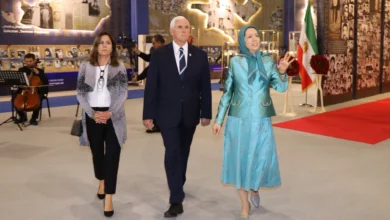Electoral deals are agreements made between political parties prior to an election with the aim of winning more votes or curbing the success of an opponent. All political systems are familiar with such deals, which may involve joint advertising, adopting common electoral platforms or exchanging votes if the electoral system allows it. These deals are part of the political game, giving those involved advantages over their opponents.
Electoral deals have existed in Egypt since multi-party elections were introduced in the mid-1970s. The first such deal was made by the ruling National Democratic Party (NDP) when it established the 'Amal (Labor Party) in 1978 to work against the Tagammu and Wafd parties. The plan backfired as the Labor Party turned against former President Anwar al-Sadat only months after the NDP had supported the its establishment.
Six years later, the Wafd Party and the Muslim Brotherhood launched a joint electoral campaign during the 1984 elections. The purpose was to allow the officially banned Brotherhood to include its candidates on the Wafd Party's list. The deal broke down however on the eve of the announcement of the election results.
An Islamic coalition was formed during the 1987 elections, which included the Brotherhood, the Labour Party and the Ahrar Party. It lasted for several years as the Brotherhood was eventually able to take control of the Labor Party.
An electoral deal was also made between a number of opposition parties during the 2005 elections, who came together under an alliance called the National Forces for Reform. That same year, the government and the Muslim Brotherhood made a deal–which was later disclosed by former Brotherhood leader Mohamed Mahdi Akef –to ease security clampdowns on Brotherhood candidates.
All these deals were legitimate and did not contravene the law. By contrast, there have also been dirty deals, which the ruling regime has mastered over time. These deals usually involve vote rigging and other fraudulent practices that are common in authoritarian states. One such deal was made in 2003 between the NDP and the Wafd Party. The two agreed to rig the Damanhur election results by replacing the winning Muslim Brotherhood candidate Gamal Heshmat with the Wafd Party's Khairy Kalag.
Another dirty deal was made in 2008 between the government and the Wafd and Tagammu parties. Candidates from the latter two were granted seats in the Gharbiya and Ismailia governorates in exchange for helping to calm the 6 April election day protests in al-Mahalla al-Kubra.
There was also the recent deal between the NDP and the Wafd and Nasserist parties prior to the Shura Council elections in May. The regime gave both opposition parties a limited number of seats so that the election would appear before the public and the international community as fair.
At present, rumors are circulating about possible dirty deals between the NDP and each of the Wafd, Tagammu and Nasserist parties in the lead up to November's parliamentary elections. Many speculate that the regime will grant more seats to the latter three parties in an attempt to sideline the Muslim Brotherhood. If the regime succeeds, it will once again retain control over opposition representation in parliament while appearing before the world as having held free and fair elections.
Dirty election deals are a reality that cannot just be denied in public statements. The Muslim Brotherhood and opposition parties have wasted a golden opportunity to boycott the elections and expose the authoritarian nature of the Egyptian regime and its elections. And for what? A handful of seats. Meanwhile, the real losers in this game are Egyptian citizens and the project of political reform.
Translated from the Arabic Edition.




